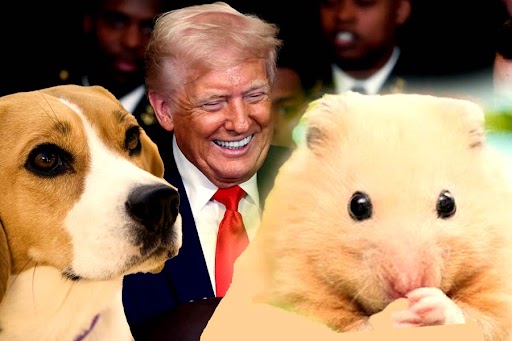The Trump administration’s recent moves to phase out animal testing in federal research programs have drawn resounding praise from animal advocacy group People for the Ethical Treatment of Animals (PETA), an organisation traditionally critical of Republican leadership.
“PETA applauds the FDA’s decision to stop harming animals and adopt human-relevant testing strategies for evaluating antibody therapies,” said Kathy Guillermo, PETA’s senior vice president, in a statement.
The policy changes announced by the Food and Drug Administration (FDA) and Environmental Protection Agency (EPA) are being described as “historic” and “long overdue” by animal welfare advocates.
This change is a turn away from mandatory testing on dogs, rats, and fish to evaluate monoclonal antibody therapies— used in cancer and autoimmune disease treatments.
The FDA has endorsed the use of lab-grown organoids, which mimic human organs and are being touted as not just more ethical, but more accurate in predicting human responses.
From watchdog organisations to advocacy groups, the positive response has been almost unanimous.
The White Coat Waste Project, known for exposing taxpayer-funded experiments on beagles, wrote on X, “Thank you @DrMakaryFDA for your years of advocacy & outstanding leadership to eliminate FDA red tape that forces companies & tax-funded federal agencies to conduct wasteful & cruel tests.”
Kitty Block, CEO of Humane World for Animals, offered a broader condemnation of past practices: “For too long, animals like dogs, rabbits and mice have endured tests that inflict suffering without delivering better science. It’s time to replace these cruel methods with modern, humane alternatives.”
Five days before the FDA's announcement, President Trump arrived at Walter Reed Medical Center for his annual physical, greeted by none other than PETA activists dressed in inflatable dinosaur costumes.
Their message was to end what they call “prehistoric” experiments at the National Institutes of Health (NIH).
“NIH dumps billions of taxpayer dollars down the drain every year on cruel and pointless experiments on animals that hold back real progress,” Guillermo of PETA had declared. “PETA urges President Trump to cut waste, slash NIH’s budget, and make America a true leader in medical research.”
PETA estimates that the NIH spends around $23 billion annually on animal experiments that largely fail to yield effective human treatments.
Citing FDA data, they note that 95 per cent of drugs that pass animal testing fail in human trials. More than half are later withdrawn due to dangerous side effects.
But the National Association for Biomedical Research warned via Fox News that “no AI model or simulation has yet demonstrated the ability to fully replicate all the unknowns about many full biological systems.”
On Thursday, Fox News Digital first reported that the FDA was abandoning the long-held requirement of animal testing for certain drug trials. The agency’s new approach relies heavily on emerging biomedical technologies like human organ models, artificial intelligence-based simulations, and real-world clinical data.
“This initiative marks a paradigm shift in drug evaluation,” FDA Commissioner Dr. Martin Makary told Fox News. “By leveraging AI-based computational modelling, human organ model-based lab testing, and real-world human data, we can get safer treatments to patients faster and more reliably.”
According to EPA spokesperson Molly Vaseliou, “Under President Trump’s first term, EPA signed a directive to prioritise efforts to reduce animal testing and committed to reducing testing on mammals by 30% by 2025 and to eliminate it completely by 2035. The Biden administration halted progress on these efforts by delaying compliance deadlines.”










